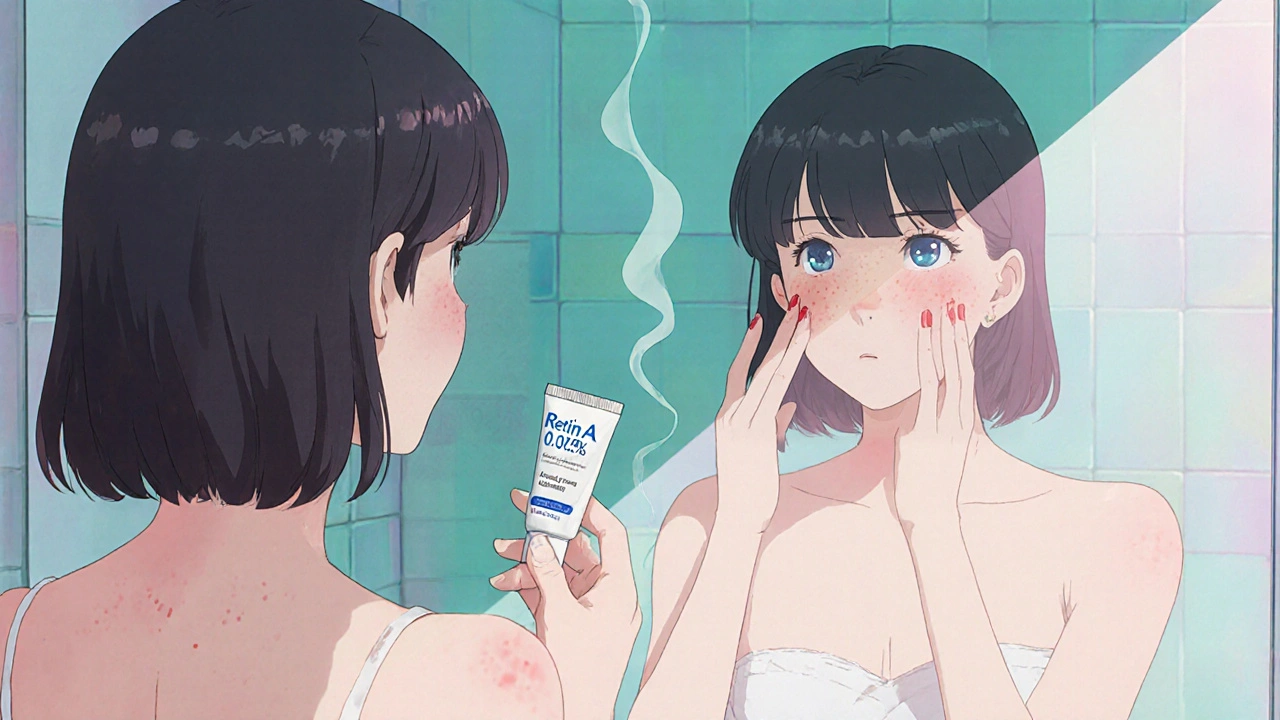Skincare Prescription: What You Need to Know About Dermatologist-Recommended Treatments
When a doctor gives you a skincare prescription, a medically approved topical or oral treatment for skin conditions that requires a doctor’s authorization. Also known as prescription dermatology products, it’s not just stronger than what you find on a drugstore shelf—it’s targeted, tested, and tailored to your specific skin issue. Unlike over-the-counter creams that promise results but rarely deliver, a skincare prescription is backed by clinical data and designed to fix problems like stubborn acne, persistent rosacea, or chronic eczema that won’t budge with regular lotions.
Most prescription retinoids, vitamin A-derived medications used to treat acne, aging, and uneven skin texture like tretinoin or adapalene work by speeding up skin cell turnover. They don’t just clear breakouts—they help prevent them by keeping pores from clogging. Then there’s topical antibiotics, medications applied directly to the skin to kill bacteria and reduce inflammation like clindamycin or erythromycin, often paired with benzoyl peroxide to fight acne without triggering resistance. For more serious conditions like psoriasis or severe eczema, doctors may prescribe topical corticosteroids, anti-inflammatory steroids used to calm redness, swelling, and itching such as hydrocortisone or triamcinolone. These aren’t meant for long-term daily use, but when used correctly under medical guidance, they can bring relief where other treatments fail.
What most people don’t realize is that a skincare prescription isn’t just about the product—it’s about the plan. Dermatologists don’t hand out prescriptions like candy. They look at your skin type, medical history, lifestyle, and even what products you’re already using. A prescription for acne might include a retinoid, a cleanser, and a sunscreen—because sun exposure can make some treatments worse. Or it might involve combining oral antibiotics with a topical cream to hit acne from both inside and out. And if you’ve tried everything and nothing works? That’s when specialists consider newer options like topical calcineurin inhibitors or even oral medications like spironolactone for hormonal acne.
There’s a lot of confusion around these treatments. Some think they’re only for teens with bad acne. Others believe they’re dangerous or cause skin to become dependent. The truth? They’re safe when used as directed. And while they’re not magic, they’re often the only thing that works when over-the-counter options fall short. The posts below cover real comparisons between these prescriptions and their alternatives—like how Aristocort stacks up against other steroids, how Ciloxan compares for eye infections, or how minocycline helps with stubborn acne. You’ll find clear breakdowns of what works, what doesn’t, and what to watch out for. No fluff. No marketing. Just what you need to understand your options and talk to your doctor with confidence.

Retin A 0.025% (Tretinoin) vs Other Retinoids: Comprehensive Comparison
A side‑by‑side look at Retin A 0.025% (tretinoin) versus popular retinoid alternatives, covering efficacy, side‑effects, usage tips, and how to pick the right one for your skin.
